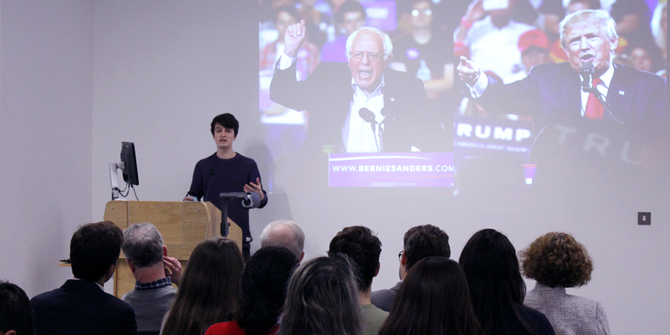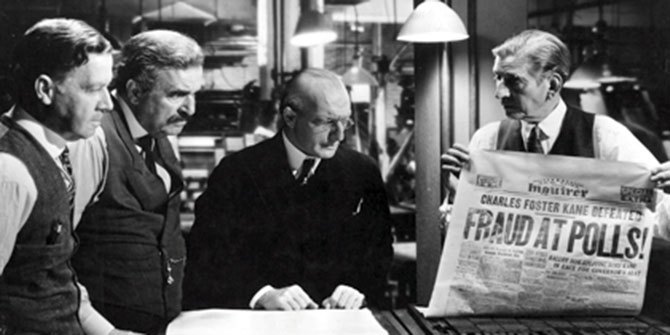Benjamin Faude and Felix Große-Kreul argue that the normative legitimacy of any international institution also depends on the effects it creates outside of its own governance domain.
“We agree that the TRIPS Agreement does not and should not prevent Members from taking measures to protect public health. Accordingly, (…) we affirm that the Agreement can and should be interpreted and implemented in a manner supportive of WTO Members’ right to protect public health and, in particular, to promote access to medicines for all.” This stipulation is the integral part of the “Declaration on the TRIPS Agreement and public health” (Doha Declaration), unanimously adopted by the members of the World Trade Organization (WTO) at their Ministerial Meeting on 14 November 2001.
The Doha Declaration responds to the negative effects that the WTO TRIPS Agreement, by increasing prices of and reducing access to essential medicines in less affluent parts of the world, imposed on global health. It results from a fierce battle between the holders of intellectual property rights on pharmaceuticals in the “Global North” and the importers of those products in the “Global South.” Within this battle, a transnational alliance of developing countries and public health NGOs brought the World Health Organization (WHO) to monitor closely how exactly TRIPS affects public health. The knowledge created by the WHO increased pressure on the WTO to justify its regulations of intellectual property rights against the backdrop of public health concerns. The Doha Declaration responds to this justificatory pressure by linking one of the governance objectives of the WTO (protecting intellectual property rights) to the governance objective of the WHO (protecting public health). In doing so, it mitigates the negative consequences that the WTO TRIPS Agreement imposes on public health.
The interaction between WTO and WHO exemplifies that international institutions often create effects outside their own governance domains. We argue that these effects impact their normative legitimacy, in other words the legitimate authority that international institutions have to make the rules which they expect people and states to abide by. More precisely, we posit that the normative legitimacy of any international institution depends also on how it deals with the negative effects it creates in the governance domains of other international institutions. In doing so, we diverge in two important ways from the dominant approach to the normative legitimacy of international institutions.
First, rather than treating international institutions as stand-alone entities which operate in isolation from each other, we conceive of international institutions as elements of larger institutional structures characterised by rule overlap, so-called regime complexes. The latter can be described as the “signature feature of twenty-first century international cooperation”.
Second, rather than locating normative legitimacy in the ability of international institutions to realise clearly separable governance objectives or in the (democratic) quality of decision-making within single international institutions, we conceive of normative legitimacy as residing in inter-institutional justificatory practices. In short, we combine a new analytical perspective on international institutions as embedded in larger institutional structures with a new approach to normative legitimacy as residing in inter-institutional justificatory practices, such as those between the WTO and the WHO described above.
Our research reveals that, as stand-alone entities, international institutions can establish only partial orders of justification which revolve around their own governance objectives. Any international institution is a key source of asymmetric power, because each international institution systematically privileges those collective actors and transnational alliances that pursue its own original governance objective over collective actors and transnational alliances that pursue diverging governance objectives.
The WTO, for instance, systematically privileges those collective actors and transnational alliances that exert justificatory pressure against the backdrop of its governance objective to liberalise trade over collective actors and transnational alliances that refer to diverging governance objectives, such as the protection of the environment or of labour rights. As a result, it is a widespread criticism among transnational human rights and environmentalist activists that the WTO, and international economic institutions in general, subordinate environmental and consumer protection as well as human and labour rights to liberal economic goals.
Larger institutional structures characterised by rule overlap (“regime complexes”), by contrast, facilitate inter-institutional and therefore more encompassing orders of justification. As the process that led to the Doha Declaration exemplifies, the embeddedness of international institutions in regime complexes enables affected collective actors and transnational alliances to create political pressure against the backdrop of diverging governance objectives enshrined in overlapping international institutions. That is, actors interacting within international institutions (e.g. the WTO) face stronger political pressure to justify negative effects (e.g. on public health) than as if they would interact within stand-alone entities. Regime complexes therefore enable the breaking open of the partial orders of justification established within single international institutions. In that sense, they facilitate normative progress in global governance by helping to balance diverging societal interests like public health and the protection of intellectual property.
It is, however, an empirical question, how considerable this progress is. Since international institutions may justify the negative effects that they create in the governance domains of other international institutions in different ways, the inter-institutional justifications put forward within regime complexes inevitably possess different degrees of normative legitimacy. The next step in advancing our knowledge on how their embeddedness in regime complexes affects the normative legitimacy of international institutions is therefore a comparative empirical analysis of the normative qualities of inter-institutional justifications put forward in various regime complexes. Our theoretical intervention thus prepares the ground for a new research agenda on the normative legitimacy of international institutions as embedded in regime complexes.
This article summarises the research and findings of, ‘Let’s Justify! How Regime Complexes Enhance the Normative Legitimacy of Global Governance’, a paper co-authored by Dr. Benjamin Faude and Felix Große-Kreul and published in International Studies Quarterly.
Note: this article gives the views of the authors, and not the position of the LSE Department of Government, nor of the London School of Economics.





